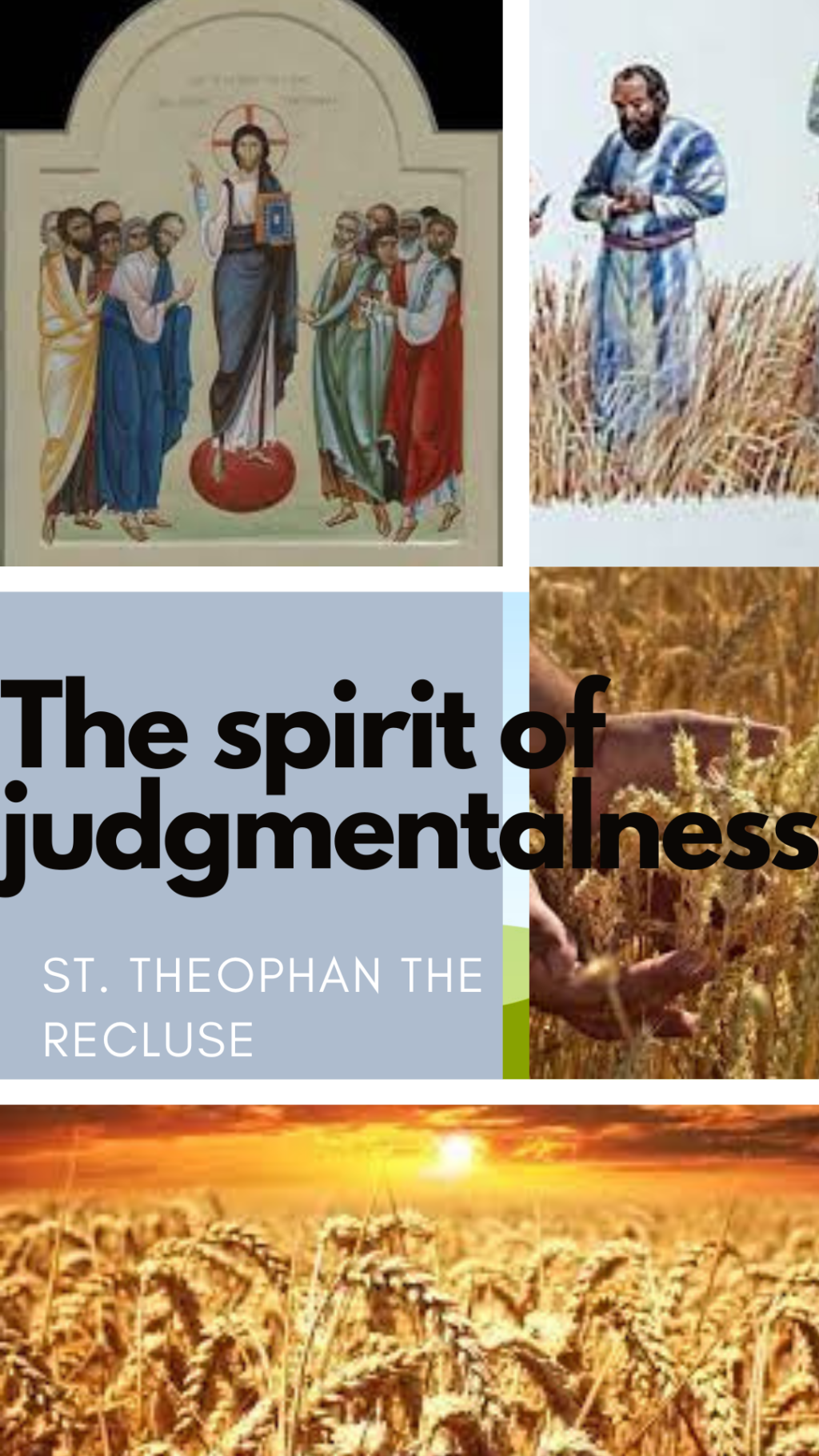The Spirit of Judgmentalness – St. Theophan the Recluse

The Spirit of Judgmentalness.
[II Cor. 3:12-18; Luke 6:1-10] The Lord’s disciples pluck the ears of grain, rub them in their hands and eat them on the Sabbath—a deed very unimportant both in appearance and in essence; meanwhile the Pharisees could not restrain themselves and rebuked them. What made them raise this issue? In appearance—unreasoning zeal, but in essence—the spirit of judgmentalness. This sticks to everything and presents all in a somber form of unlawfulness and destructiveness. This infirmity, to a greater or lesser degree, is common to almost all people who do not watch themselves. Not everyone will express judgmental thoughts in word, but it is rare for a person to refrain from them. Someone sits beside the heart and stirs up judgmentalness—it pours forth. But at the same time, the judge himself is prepared to do deeds which are not good, as long as nobody sees, and he is unfailingly in a state that is not so good in some way. It is as though he judges and condemns for that very reason—in order to satisfy his inwardly insulted and suppressed feeling of righteousness with attacks on others, groundless as they may be. He who loves righteousness and stands in it, knowing how difficult it is to attain correctness in deeds and even more so in feelings, will never judge; he is ready sooner to cover with leniency not only small, but also great transgressions of others. The Lord does not judge the judging Pharisees, but indulgently explains to them that the disciples did something that anyone would excuse if they thought about it rightly. And it almost always is this way: think reasonably about your neighbor’s actions and you will find that it does not at all have that serious, ghastly character which you saw at first.



🇷🇺 Святитель Феофан Затворник
(Лк. 6, 1-10). Господни ученики срывают колосья, растирают их руками и едят в субботу. Дело очень маловажное и на вид, и по существу своему; между тем фарисеи не утерпели и укорили их. Что заставило их поднимать об этом речь? На вид – неразумная ревность, а в существе – дух пересудливости. Этот за все цепляется, и все представляет в мрачном виде беззаконности и пагубности. Это немощь, в большей или меньшей степени, почти общая у людей не внимающих себе. Словом не всякий выскажет пересудливые мысли, а удержаться от них редкий удерживается. Кто-то приседит сердцу и разжигает его на пересуды – оно и источает их. Но в то же самое время пересудчик сам готов на недобрые дела, лишь бы только никто не видал, и непременно состоит в недобром порядке в каком-либо отношении; он как-будто затем и судит и осуждает, чтобы чувство правды, оскорбленное и подавленное в себе, вознаградить нападками на других, хоть бы то и неправыми. Правдолюбивый и стоящий в правде, зная, как трудно достается исправность в делах, а еще более в чувствах, никогда не станет судить; он скорее готов бывает покрыть снисхождением не только малое, но и великое преступление других. Господь не судит пересудчиков фарисеев, а снисходительно толкует им, что ученики сделали поступок, который всякий, рассудив как следует, может извинить. И всегда почти так бывает: рассуди о поступке ближнего и найдешь, что он совсем не имеет того важного, ужасающего характера, который показался тебе в нем с первого раз




